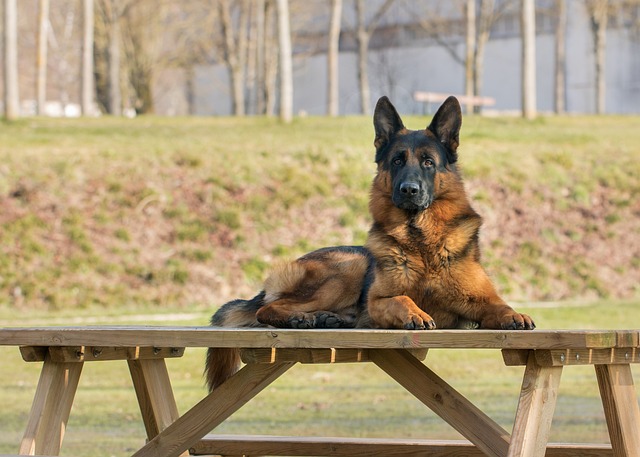I’ve been breeding dogs for the past 25 years and am a behaviorist. Today, I will provide you with comprehensive details about German Shepherds, including their characteristics, pros and cons, common problems when keeping them, and their solutions. Whenever you face any issues with dogs, reading my articles will be very helpful.
About the German Shepherd Puppy
A 50-day-old German Shepherd puppy has an adorable face and head. Their ears make them look even cuter when they stand up. German Shepherds are an amazing breed, widely used in security forces around the world. When children dream of having a big dog, they often think of having a German Shepherd. I used to dream of having one, playing with it, and going for walks.
When you play ball with a German Shepherd, passersby often stop to admire the beautiful dog. They have an incredible sniffing ability and make excellent companions. If you want to keep them with your children, they are fantastic. They are also great for first-time owners.
Coat and grooming
German Shepherds have a beautiful coat that requires regular maintenance. Whether it’s a long or short coat, you need to maintain it properly. If you notice a lot of shedding, it’s essential to use a slicker hairbrush and grooming gloves. Grooming gloves help with blood circulation and make the coat shiny while eliminating dullness, dryness, bad smells, and dandruff.
Use high-quality shampoo to maintain their coat, as it will give it a good smell and make it look great. Their ears are also beautiful, and they need to be maintained. Use medicated pet wipes for cleaning their ears, but use a new wipe for each ear to avoid infections. A proper diet is crucial for their ear health, as deficiencies can prevent their ears from standing properly.
Diet and health
A balanced diet is essential for German Shepherds. Even if you are giving them high-quality dog food and multivitamins, it’s important to understand their specific dietary requirements based on their body fitness. This ensures there are no deficiencies or problems.
For proper bone and joint development, timely growth is important, but giving the right amount of food is crucial. If a German Shepherd doesn’t get the necessary nutrients, their bones may become hollow and their joints may weaken. This can cause issues with their hind legs. Avoid letting puppies climb stairs until they are four months old, and if necessary, carry them to protect their legs.
Exercise and socialization
Playing ball with your dog is fine, but be cautious on slippery surfaces like marble, as it can cause leg issues. It’s better to play outside on the ground, where they can run comfortably. Socializing your German Shepherd with friends, family, and other dogs before they are six months old is crucial. Lack of socialization can make them aggressive.
German Shepherds are very sensitive and can understand your expressions. They will start loving you more if they sense that you care for them. They are loyal and will always stand by you, even when the world is against you. If you show them love once, they will reciprocate tenfold.
Common Problems and Solutions
- Ear Nerves Damage: If you have two dogs and one pulls the other’s ears, it can damage the nerves, preventing the ears from standing. Ensure they have a balanced diet to avoid such issues.
- Customized Diet: A customized diet plan is crucial for German Shepherds to ensure proper hair growth, a shiny coat, and correct joint formation.
- Weight Gain: A 6-month-old German Shepherd can gain 4 kg in one month with a balanced diet.
German Shepherds are an amazing breed, suitable for various roles, including security, companionship, and family pets. They require proper grooming, a balanced diet, and regular exercise to stay healthy and happy. Socialization is key to preventing aggression and ensuring they are friendly and loyal companions. By following these tips, you can enjoy a wonderful relationship with your German Shepherd.


5 thoughts on “German Shepherd: Everything You Need to Know”